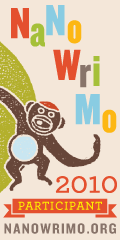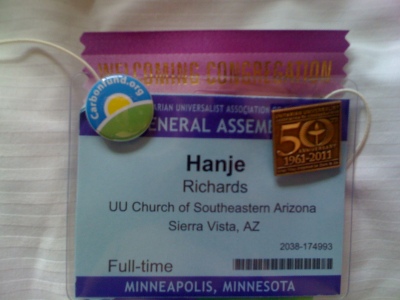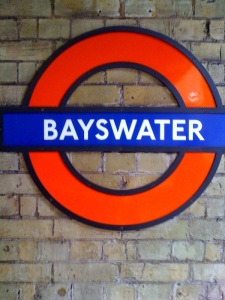Moans, Groans, Stones and Bones
I have been on a medical quest for the last few years. It started about 9 years ago when I had my first kidney stone. It hasn’t been a very rigorous quest, but slowly as time has passed (and I waited for other kidney stones to pass…there have been 4 so far) my doctors and I have been working on the question. We have been working on a lot of things, so the kidney stone problem didn’t always take center stage.
In February 2007, when my mother died and for months thereafter, I suffered some rather more severe depression than what I normally suffer from. I went to see a therapist, who within 5 minutes of our first meeting asked me when I had last attended an AA meeting. I also had asked my primary care physician to change my anti depression medication. This proved to be a disaster, as I ended up having a bad reaction to the new medication and ultimately ended up going back to the medication I had been on originally.
I started attending AA meetings at least weekly, after a hiatus of nearly 20 years, and although I rarely talked at meetings, some of my depression symptoms began to ease.
In March 2007 I was diagnosed with Type 2 diabetes. I was put on a very strict low carbohydrate diet, which I followed to the letter. I was put on medication for diabetes and high cholesterol and triglycerides. I quit smoking and began exercising. I lost weight. I got my numbers under control. I continued to attend AA meetings. I felt tired much of the time, but I chalked it up to medical problems, aging, and depression.
In November 2007 I had another kidney stone (this was #4). I drove myself to the emergency room, and spent several hours in the emergency room, giving the longest and most detailed medical history ever. I continued to refuse the pain medications that they were offering me, but did accept the hydration that was provided as I was very dehydrated and exhausted from being up all night in pain.
That kidney stone never passed. (I actually can’t say that I ever experienced the passing of a kidney stone, but they say that is the worst part, so I probably would have noticed!) I went to a urologist who was going to do laser surgery, but not until we returned from the first summer of “Sabbatical Summer (summer of 2010).”
The laser surgery was a success, but I had new dietary restrictions. In addition to my low carb diet, which had been relaxed minimally over the years, I was put on a low oxalate diet. High oxalate foods include: peanuts, tree nuts, spinach, olives and a host of other fruits and vegetables. (A good share of my low carb diabetes diet snacks included peanuts, almonds and olives.)
To find out if the diet was working (reducing the oxalates in my body which were probably partially responsible for my kidney stones) I had a test done that required a 24 hour urine collection. When the results became available, I learned that my oxalates were now normal, which was the good news. I also learned that my calcium was elevated.
One afternoon at work I received a phone call from my doctor, who thought I should be tested for one more thing. It was probably unlikely, but it could be the reason for my elevated calcium levels. The condition she referred to is hyperparathyroidism. I made an appointment with an endocrinologist, who sent me to nuclear medicine for a scan and to a surgeon. The endocrinologist did not seem to think that it would matter if I waited until after Sabbatical Summer 2 (summer 2011). I arranged appointments for the scan and the visit to the surgeon for this past Monday and Tuesday.
I had a pretty good summer. The weather did not always cooperate. I set goals for myself that I didn’t seem to be able to achieve. I got depressed and frustrated that I didn’t get more writing done. I felt tired and lazy. A person who has always sprung out of bed early, already awake, would lay in bed for a long time every day, trying to wake up. I read a lot. I watched a lot of TV series. I slept what felt like too much. I enjoyed time with friends and some of things we did, but I do think I was actually very stressed about the possible diagnosis of hyperparathyroidism.
I finally in the last couple of weeks of Sabbatical Summer 2 looked up parathyroid on the internet and learned something about the possible symptoms and consequences of the disease. There are all kinds of websites out there that detail what it is and what it does, but when I looked at the symptoms, I realized that a lot of the things I had attributed to age and other health issues perhaps were related more specifically to this condition and there was a possibility for improvement.
Without going into detail, the two days I spent inTucsonthis week netted the result that I do indeed have hyperparathyroidism and will be having surgery in January.
Here is a list of the possible symptoms of hyperparathyroidism, which often are not reported because people assume they are part of the aging process, or a difficult period in their lives. I found that I had more than a couple of them, but would have not thought to bring them to the attention of my primary care physician because they seemed too minor.
- Back pain
- Blurred vision (because of cataracts) (check…first comment from eye doc at my most recent visit)
- Bone pain or tenderness
- Decreased height
- Depression (check)
- Fatigue (check)
- Fractures of long bones
- Increased urine output
- Increased thirst
- Itchy skin
- Joint pain (check, see in particular my sports injury last March which may be considered joint pain and which continues to this day)
- Loss of appetite (unfortunately NOT)
- Nausea
- Muscle weakness and pain (see above re: joint pain)
- Personality changes (someone else will have to answer this one…although I do feel like I am more quick to anger and frustration than I have been for many years)
- Stupor and possibly coma (check, no coma, but I sure do feel like I am in a stupor much of the time)
- Forgetfulness (check, especially losing words or train of thought in the middle of a sentence)
- Upper abdominal pain
The list of possible complications includes kidney stones (check, check, check, check) and osteoporosis.
As a result of the symptoms and complications of this condition, it has been given the name, Moans, Groans, Stones and Bones. When I found that nickname, I had a huge laugh. I felt like that was the perfect description of my life the past few years.
When I was leaving the surgeon’s office yesterday, seeing if I could arrange my surgery during my next work hiatus (January), he said that would be no problem, as it was something I had probably had for years.
So in many ways it was a relief to be diagnosed and to know there is a good chance that I will improve in many of the areas that I have felt so frustrated by over the past few years.



